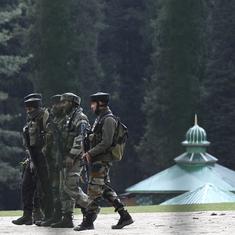The song, written by Rajendra Krishnan and composed by the brothers Husnlal and Bhagatram, reportedly sold a million copies in the first month of its release, an astonishing number even by today’s standards.
Rafi was only 24 years old at the time of the recording, but had already performed in public for 11 years before that. With the popularity of this song, he became a household name. On Independence Day in 1948, Nehru awarded Rafi a silver medal and two years later invited him to sing Lehrao tiranga lehrao on India’s first Republic Day.
The musicians wrote and composed this song in the style of a bhajan, with verses following the same repetitive tune and meter, punctuated every few lines by the refrain: Suno suno aye duniyawalo, Bapu ki yeh amar kahani.
Perhaps because of the hurried nature of the composition, the lyrics recount Gandhi’s life in a fairly straightforward manner, covering all the key points, from his education in London and his work in South Africa, to the longer, more sustained Independence and social upliftment movements in India.
The last verse is the most poignant. The music slows dramatically and Rafi, moved perhaps by fresh grief, recounts Gandhi’s last day, singing of how “ahinsa ke seene par hinsa ne goli barsayi.” Godse remains unnamed.
This verse remains the most talked of. Last January, VS Datta, editor of the Northern Indian Patrika newspaper in Allahabad, wrote an indignant open letter to Vividh Bharati for omitting this last verse on the anniversary of Gandhi’s death, when even Radio Ceylon played the entire song. But at least part of his ire was because Vividh Bharati also chose to play music dedicated to Preity Zinta.
Another song by Talat Mahmood, composed for the film Matlabi Duniya in 1961, speaks with the benefit of a decade. Mahmood sings to Gandhi that his country still weeps over his loss.










